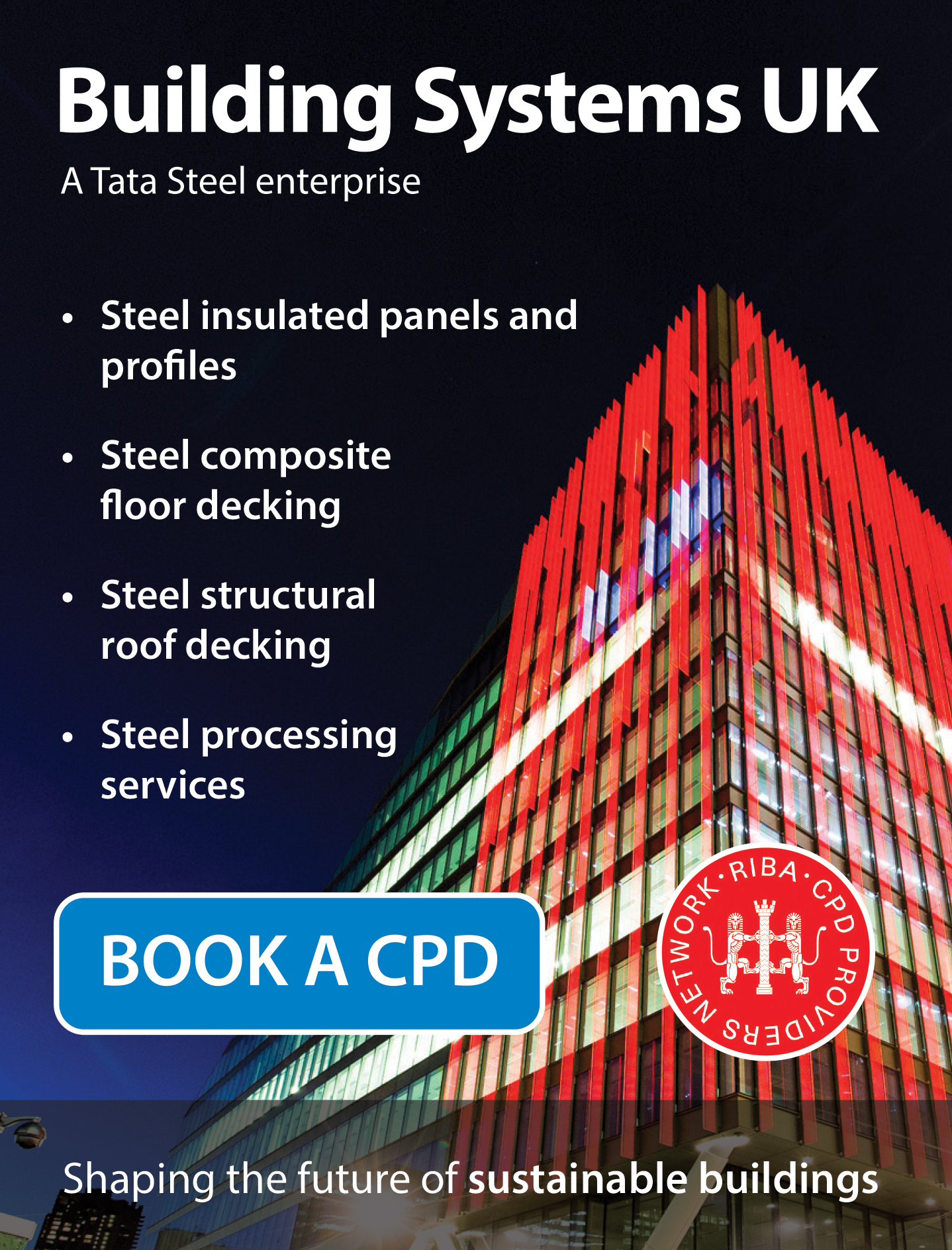Despite research by the UK Green Building Council (Nov 2021) showing that embodied carbon emissions due to the construction process, maintenance and demolition of buildings, created 40 to 50 million tonnes of CO2 annually – more than aviation and shipping combined, the UK government has failed to regulate the embodied carbon cost of construction whilst focusing solely on operational emissions.

As a result, experts in the field of decarbonisation have worked together to develop a proposal for amendments to the Building Regulations that could be used to mandate the reporting and limiting of carbon emissions.
Head of Sustainability at Whitecode, Ellen Huelin, takes a look at the proposed Part Z amendment to the Building Regulations and the concept of embodied carbon regulation. She argues that without such regulation the UK could easily fail to meet its ambitious carbon emissions targets.
There has been a great deal of focus trained on the energy efficiency of properties being built and operational emissions, but not enough attention has been paid to the sustainable aspect of the construction process. I agree with the authors of the proposed amendments to The Building Regulations 2010 that there is the need for legislation to be introduced that would ensure that embodied carbon is assessed on all projects as part of a comprehensive whole-life carbon assessment.
The House of Commons’ Environmental Audit Committee agree. In its report in May 2022 entitled Building to net Zero: costing carbon in construction, it states that the single most significant policy the government could introduce is a mandatory requirement to undertake a whole-life carbon assessment for buildings and that this requirement should be set within building regulations and the planning system. It says the government should then develop progressively ratcheting carbon targets for buildings, with a clear timeline for introducing this in place by the end of 2022.
This is the biggest indication yet that the government is beginning to listen to our industry which has been actively supporting the concept behind a new Part Z and recognising that, as a result of a lack of policy, no real progress has been made in reducing embodied carbon emissions within the built environment. Our sustainability team at Whitecode has a great deal of experience carrying out whole life-cycle carbon (WLC) emission assessments, that consider operational as well as embodied carbon emissions together over a project’s expected life cycle, because the London Plan (policy SI 2) sets out a requirement for development proposals to calculate and reduce WLC emissions as part of a WLC assessment. London has an ambitious target to become zero-carbon by 2050, but even the London Plan has no specific embodied carbon targets, only ones around reducing carbon in operation. Outside of London it seems that only the most forward-thinking developers or those where sustainability is their Unique Selling Point (USP) are carrying out voluntary whole-life carbon assessments.
Policy change will be the quickest route to transform the industry so that we can match countries including the Netherlands, France and Sweden who already regulate embodied carbon emissions. It is frustrating that we are lagging behind others when we have an industry that is calling for it! Any new policy needs to be progressive otherwise the industry will not achieve substantive change. The government’s Future Homes and Buildings Standard will ensure that all future homes will be net zero ready from 2025, if new regulations around embodied carbon emissions don’t come into play soon, this will be a standard that will be difficult to meet.
We also need regulation and quickly, around the use of sustainable construction materials to ensure that as an industry we are working towards net-zero. To do this I believe the government needs to incentivise their use and their development. We need to consider the circular economy. We know that we shouldn’t be putting things into landfill and that we should be looking to recycle where possible, but we don’t want to just be able to recycle; we need to be able to re-use construction materials again and again. We need to look at how functional and adaptable they are and ensure they are designed for assembly so they can be remodelled and repurposed. We can no longer just stick materials together if we want to work towards a whole life-cycle approach.
Industry standardisation will support moves to regulate embodied carbon. Notes on the proposed Part Z say that a cross-industry team is developing a free-to-use Built Environment Carbon Database (BECD) that will be launched this year, the idea being that it minimises the cost and complexity of the process of measuring embodied carbon. The BECD will also include a product database. The standardisation and bringing together of information is vital to allow new regulations to be easily implemented. The government needs to adopt this approach by standardising methodology, creating reporting frameworks and setting minimum targets for the construction sector.
Industry support for regulation is clear, with major developers and industry bodies stepping forward to support the concept of Part Z. I am also seeing a change of mindset coming from within the sector around environmental, social and corporate governance (ESG). Recently I have been asked by a number of clients for advice around ESG and one client has asked me to join their sustainability steering group to help them with the mechanisms of placing sustainability intrinsically within their business. These are positive developments that demonstrate a real appetite by companies to accelerate their reduction in carbon emissions. The government needs to recognise that the construction industry is ready and willing for change. The time is now.
There has been a great deal of focus trained on the energy efficiency of properties being built and operational emissions, but not enough attention has been paid to the sustainable aspect of the construction process. I agree with the authors of the proposed amendments to The Building Regulations 2010 that there is the need for legislation to be introduced that would ensure that embodied carbon is assessed on all projects as part of a comprehensive whole-life carbon assessment.
The House of Commons’ Environmental Audit Committee agree. In its report last month (May 2022) entitled Building to net Zero: costing carbon in construction, it states that the single most significant policy the government could introduce is a mandatory requirement to undertake a whole-life carbon assessment for buildings and that this requirement should be set within building regulations and the planning system. It says the government should then develop progressively ratcheting carbon targets for buildings, with a clear timeline for introducing this in place by the end of 2022.
This is the biggest indication yet that the government is beginning to listen to our industry which has been actively supporting the concept behind a new Part Z and recognising that, as a result of a lack of policy, no real progress has been made in reducing embodied carbon emissions within the built environment. Our sustainability team at Whitecode has a great deal of experience carrying out whole life-cycle carbon (WLC) emission assessments, that consider operational as well as embodied carbon emissions together over a project’s expected life cycle, because the London Plan (policy SI 2) sets out a requirement for development proposals to calculate and reduce WLC emissions as part of a WLC assessment. London has an ambitious target to become zero-carbon by 2050, but even the London Plan has no specific embodied carbon targets, only ones around reducing carbon in operation. Outside of London it seems that only the most forward-thinking developers or those where sustainability is their Unique Selling Point (USP) are carrying out voluntary whole-life carbon assessments.
Policy change will be the quickest route to transform the industry so that we can match countries including the Netherlands, France and Sweden who already regulate embodied carbon emissions. It is frustrating that we are lagging behind others when we have an industry that is calling for it! Any new policy needs to be progressive otherwise the industry will not achieve substantive change. The government’s Future Homes and Buildings Standard will ensure that all future homes will be net zero ready from 2025, if new regulations around embodied carbon emissions don’t come into play soon, this will be a standard that will be difficult to meet.
We also need regulation and quickly, around the use of sustainable construction materials to ensure that as an industry we are working towards net-zero. To do this I believe the government needs to incentivise their use and their development. We need to consider the circular economy. We know that we shouldn’t be putting things into landfill and that we should be looking to recycle where possible, but we don’t want to just be able to recycle; we need to be able to re-use construction materials again and again. We need to look at how functional and adaptable they are and ensure they are designed for assembly so they can be remodelled and repurposed. We can no longer just stick materials together if we want to work towards a whole life-cycle approach.
Industry standardisation will support moves to regulate embodied carbon. Notes on the proposed Part Z say that a cross-industry team is developing a free-to-use Built Environment Carbon Database (BECD) that will be launched this year, the idea being that it minimises the cost and complexity of the process of measuring embodied carbon. The BECD will also include a product database. The standardisation and bringing together of information is vital to allow new regulations to be easily implemented. The government needs to adopt this approach by standardising methodology, creating reporting frameworks and setting minimum targets for the construction sector.
Industry support for regulation is clear, with major developers and industry bodies stepping forward to support the concept of Part Z. I am also seeing a change of mindset coming from within the sector around environmental, social and corporate governance (ESG). Recently I have been asked by a number of clients for advice around ESG and one client has asked me to join their sustainability steering group to help them with the mechanisms of placing sustainability intrinsically within their business. These are positive developments that demonstrate a real appetite by companies to accelerate their reduction in carbon emissions. The government needs to recognise that the construction industry is ready and willing for change. The time is now.





